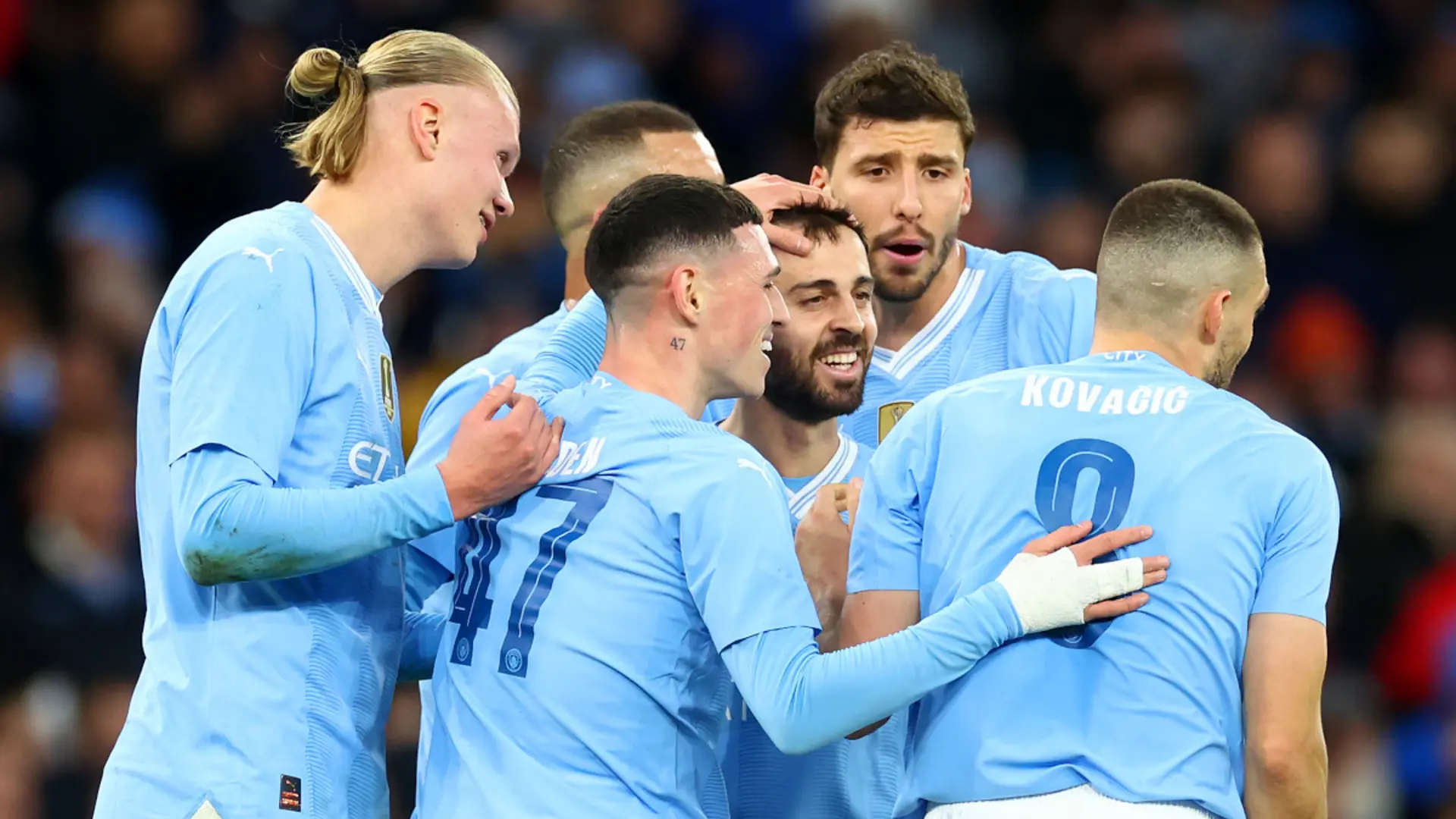Man City's iron grip shows no sign of weakening

Manchester City's assault on the record books continues this weekend in the FA Cup final and their stranglehold over English soccer shows no sign of weakening any time soon.
Victory over Manchester United, whose one-time dominance is now a fading memory, will see City become the first club to win the English title and FA Cup in successive seasons.
That would come a week after they sealed an unprecedented fourth Premier League title in a row and a year after Pep Guardiola's side matched United's 1999 treble by also winning the Champions League for the first time.
If they beat United, and few expect any other outcome, it would be the 21st major trophy City have won since Abu Dhabi's Sheikh Mansour acquired the club in 2008.
Another opportunity to write English football history! 🏆
— Manchester City (@ManCity) May 23, 2024
Find out everything you need to know in our #FACup finals Stat Attack! 👇 pic.twitter.com/R27p0M1EQd
Arsenal pushed them close this season but there was an inevitability that City would claim their sixth title in eight seasons under Spanish mastermind Guardiola.
Usurping City requires perfection, as Arsenal manager Mikel Arteta and outgoing Liverpool boss Jurgen Klopp know only too and City's modus operandi means the challenge is huge.
The statistics do not lie.
In the last four seasons, City have amassed an average of 89.75 points in the Premier League. Of the clubs most likely to threaten their monopoly, Liverpool average 77.5, Arsenal 75.7, Manchester United 66.7. Tottenham Hotspur 64.75 and Chelsea 62.
Since 2015 City have exceeded their expected points total based on player wage bills by 15 points – double the next best club which is Brighton & Hove Albion – according to the FT.
What is more, City's net spend on players in the last five years is €379 million, according to transfermarkt.co.uk, compared to Chelsea's 800 million, Manchester United's 694 million, Arsenal's 638 million and Tottenham's 537 million.
RESTRICTED LANDSCAPE
Dan Plumley, a soccer finance expert at Sheffield Hallam University, said everyone was trying to play catch-up in an increasingly restricted financial landscape.
"City don't have to spend big but they will probably add two or three players every single year," he told Reuters.
"People talk about the gap between the big six, or seven if you include Newcastle United, and the rest of the league, but there is now also a gap between City and some of those clubs."
The Premier League's Financial and Sustainability rules snagged the likes of Everton and Nottingham Forest this season as they attempted to compete with the big hitters.
Those rules, criticised for stretching the gap between the top clubs and the rest, will likely be replaced by a Uefa-style spending cap from 2025-26.
"They are saying to clubs you can only invest to a degree, and then it's whether that investment is enough to catch City and I don't believe it would be based on the numbers, it could be anti-competitive to some," Plumley said.
While City look unshakable, there are clouds looming.
Guardiola hinted after last weekend's title-clincher that next season could potentially be his last. City also have to deal with 115 Premier League charges for alleged financial irregularity dating back to 2009, which they strongly deny.
Some suggest that a huge points deduction, if they are found guilty, could re-set the balance of power.
"It could alter the dynamic in the short term but does that alter it in the long term?" Plumley said. "There will be a time when things shift big at City anyway, regardless of what may or may not happen with the charges.
"Overwhelmingly that club is well set as an organisation and infrastructure wise to keep delivering on-pitch returns."
City's domination has raised questions about the Premier League being the most competitive in the world, but Plumley cited Aston Villa's rise and Chelsea's struggles as examples of compelling storylines that will continue to make it hugely successful.
"In theory if you lose a competitive balance in your ecosystem the product should decline and be less attractive to broadcasters," Plumley said.
"But we haven't seen that and broadcasting fees have gone up, not down, so the Premier League probably don't think they've got a problem to solve."
Advertisement